By using our site, you agree to our cookie policy.
Conveyancing Solicitors Explained
A simple introduction to everything you need to know about conveyancers, otherwise known as conveyancing solicitors.

When will I need a conveyance solicitor?
Conveyance solicitors are legal professionals who specialise in property law and handle the legal aspects of property transactions. Though they are technically not essential, they play a vital role in the buying, selling, and transferring of properties, ensuring that the process is conducted in accordance with the law. Conveyance solicitors handle a number of tasks (which we will go into shortly), but the three moments where their services are most crucial are: When deciding to offer - when the buyer is ready to make an offer on the property the agent will notify the seller, and the seller’s conveyancer drafts a contract. During the “exchanging” period - this is the moment when contracts are agreed upon and “exchanged” or swapped between the seller and buyer. When “completing” on a property - this is when the legal selling process is finished up. The legal titles are passed over, along with the funds to buy the property. Once you have completed, you officially own the property.

Solicitor vs. conveyancer…what’s the difference?
The conveyancing process can be handled by either a solicitor, or a conveyancer. You could also see the two options described as “licensed conveyancers” or “conveyancing solicitors.” Both are types of lawyers, so they could be referred to as that too.
What’s the difference? Both conveyancers and solicitors are legal professionals, who can handle all the legal aspects of transferring ownership from one party to another. In this way, they’re interchangeable. If they’re reputable, licensed and well reviewed, both a conveyancer and a solicitor will get the job done.

There are some differences between the two. Firstly, a conveyancer tends to be a little cheaper than a solicitor. This relates to the second difference: skills and expertise. Solicitors have a wide range of legal expertise, whereas conveyancers are just experts in property and conveyancing. This means that if you have a more complex buying or selling process, a solicitor can offer a full range of legal services. For example there may be complexities or obstacles surrounding the title deeds which are better handled by a solicitor. But there’s no hard and fast rule: you should choose a conveyancing team that works for you.
Why do I need a conveyance solicitor?
So we’ve established that conveyancers are needed at 3 main times during the house buying/selling process - but what do they actually do? And why do you need one? We like to think of conveyance solicitors as the “responsible adult” in the home-buying process. They have areas of expertise and training that you won’t have (unless you’re a conveyance solicitor buying a house…). By employing them, you’re letting the “grownup” take the reins during the legal bits, so that you can guarantee that it will be a smooth and legally watertight process. A conveyancer will handle: Financial Matters: Conveyancers handle the financial aspects of a property transaction, including facilitating the transfer of funds between the buyer, seller, and mortgage lender. They calculate and arrange for the payment of taxes, stamp duty, and other fees associated with the transaction. Searches: Mortgage lenders will require you to have surveys on the house, to ensure they are lending you money in good faith that the property is worth the amount you are paying. Searches are slightly different, as they check the legal state of the property, rather than the physical state. One of the crucial tasks of a conveyance solicitor is to conduct thorough searches on the property. Conveyancers conduct searches in order to check any potential legal issues with the property, such as - are there any liens (charges that remain unpaid) or planning permission issues on the house? Or is the property on land which has subsidence issues? Basically, they search for any legal restrictions that could affect the property transfer. Disbursements: Conveyancing disbursements in the UK refer to the additional costs or fees incurred by your solicitor or conveyancer during the conveyancing process. These disbursements are typically third-party charges that your solicitor will pay on your behalf. While the specific disbursements can vary depending on the solicitor and location, there are some general fees to expect. More on that later...

Negotiations and Advice: Conveyancers provide guidance and advice throughout the transaction process. They can help negotiate the terms and conditions of the sale, review the survey reports, and advise you on legal and financial matters. Their expertise helps you make informed decisions and protect your interests. Drawing up contracts: A draft contract is drawn up by the seller and their solicitor when an offer is made. This contract must include various details, including price, boundaries, planning restrictions, and so on. This contract must also include a completion date for the transaction and an energy performance certificate. Exchanging contracts: When it comes to property transactions, "exchanging" typically refers to the exchange of contracts between the buyer and the seller. This is a significant step in the process of buying or selling a property. It’s called “exchanging” because it used to be a physical exchange of contracts between lawyers, but now it can usually all be done virtually. Once the contracts are exchanged, both parties are legally bound to complete the transaction on the agreed terms, including the purchase price and completion date. The legal transfer of funds, or “completion”: Once all the necessary legalities and financial matters are in order, conveyancing solicitors oversee the completion of the property transaction. They coordinate with the parties involved to exchange contracts and arrange for the transfer of ownership. Engaging a conveyancer provides you with peace of mind, as they handle the legal intricacies of the property transaction on your behalf. Their expertise and attention to detail help protect your rights, mitigate risks, and ensure a smoother process from start to finish.
What should I look for in a conveyancer?
There are a few things to look for when comparing a conveyancer. Firstly, are they wearing a nice outfit and would your parents approve? Oh wait sorry that’s a different list. Here are some requirements from your conveyancer: Good communication: Ask how they like to communicate, and try to ascertain if it will suit you. Also - will they be available enough for you? Some conveyancers and solicitors may be very over-stretched, which will slowdown your buying/selling process. Willing to work with your mortgage lender: Some lenders are only willing to work with their approved “panel”, which is a list of conveyancers they are willing to work with. With this in mind, asking your lender for their recommendations could be your port of call. Reputation: Do they have good reviews online? Has your lender recommended them? Has anyone local used their services? These are all good things to check. Local knowledge: Though your conveyancer doesn’t have to literally live on your road, local knowledge can provide some advantages, particularly if they’re working with local 3rd parties, for example when they’re doing your Drainage and Water Search. Cost: Ask how and when they charge. Does it work for you? Let's go into this a little bit...
Engaging a conveyancer provides you with peace of mind, as they handle the legal intricacies of the property transaction on your behalf."
Conveyancing fees - how do they charge?
Conveyancing fees differ depending on several factors, like the cost and location of the property, but the average cost in the UK is between £400 to £1,500. The specific fee arrangement may vary depending on the solicitor or firm you choose to work with. Conveyancers and solicitors will usually split their fees into two parts: the legal fees, plus the disbursements. Here are some common methods of charging: Fixed Fee: Many conveyance solicitors offer a fixed fee arrangement, where they provide a clear and upfront cost for their services. This fee typically covers all the legal work involved in a standard property transaction. Fixed fees are often based on the property's value or the complexity of the transaction. This fee structure provides transparency and allows clients to budget accordingly. Hourly Rate: Some conveyance solicitors charge an hourly rate for their services. The rate can vary depending on the solicitor's experience, expertise, and location. With this billing method, the solicitor tracks the time spent on the case and bills the client accordingly. It's essential to clarify the solicitor's hourly rate and obtain an estimate of the total cost based on the anticipated time required.

Percentage of Property Value: In certain cases, conveyance solicitors may charge a percentage of the property's value as their fee. This approach is less common and is typically reserved for higher-value properties or more complex transactions. The percentage can range from 0.5% to 2% or more, depending on various factors. No Sale, No Fee: Some conveyance solicitors offer a "no sale, no fee" arrangement, where they only charge if the property transaction successfully completes. If the sale falls through for any reason, the solicitor may not charge any fee or may charge a reduced fee for the work conducted up to that point. It's important to clarify the terms and conditions of the "no sale, no fee" arrangement before engaging a solicitor.
When will I pay my conveyancing fees?
As a buyer, you will typically pay your conveyancer or solicitor when you complete on your property sale/purchase. Completion refers to the final stage of the process when ownership of the property is transferred from the seller to the buyer. At completion, the conveyancer will usually send an invoice detailing their fees and any additional disbursements. The payment is typically made using funds provided by the buyer, which are often held by the conveyancer in a designated client account. These funds can include the purchase price of the property, as well as any additional costs such as Stamp Duty Tax. Once the funds are received by the conveyancer, they will deduct their fees and any other expenses from the total amount before transferring the remaining balance to the seller's conveyancer. The seller's conveyancer will then distribute the funds as necessary, including paying off any outstanding mortgages or loans on the property and providing the remaining proceeds to the seller. Alternatively, after your deposit is transferred you will receive an invoice and pay it separately from the funds for the house. This fee should include the Stamp Duty fee, which the conveyancer will pay for you within 14 days of the purchase.

Disbursements
The extra costs are charged by third parties but paid by your conveyancer. You then repay your conveyancer for these costs. They include (but aren’t limited to) the following: Land Registry Fees (based on the value of your house, between £40 to £910): These fees are charged for registering the property's ownership with the Land Registry. The cost is based on the property's value and can vary. Bankruptcy Search (£2-£4): Your solicitor may carry out a bankruptcy search to check if the seller or buyer is bankrupt. This search helps ensure that the property transaction is not affected by any bankruptcy issues. The cost of this search is typically minimal. Land registry office copies (£4 to £8): This is to ensure the seller is the legal owner of the property. Telegraphic Transfer Fee (£25 to £45): This is a fee to the bank to complete the financial transfer of the property. Drainage search (£30-£40): This ensures that the property is properly connected to a fresh water supply and effective sewage system.

Conveyancing FAQs
How do I choose a conveyancer?
There are many ways to find a conveyancing solicitor. Whichever way you choose, your conveyancer must be part of the Council for Licenced Conveyancers. Here are some places to search for your conveyancer or solicitor? Ask friends or family for recommendations. Check online - this may bring up a lot of results, but you can check reviews and ratings on comparison websites. Ask your mortgage broker or lender to recommend a conveyancer - they may particularly like working with a specific firm. If you’ve got a good relationship with your broker, then you may find that working with their recommendation works best for you.
What is a draft contract?
Should I get a conveyancer before or after I make an offer on a property?
What is checked during conveyancing?
Is it cheaper to use a solicitor or conveyancer?
How do conveyancers charge?
What role do estate agents play after the offer is accepted?
What can go wrong during sales progression?
Strike feel free
Copyright © Strike Limited 2024

